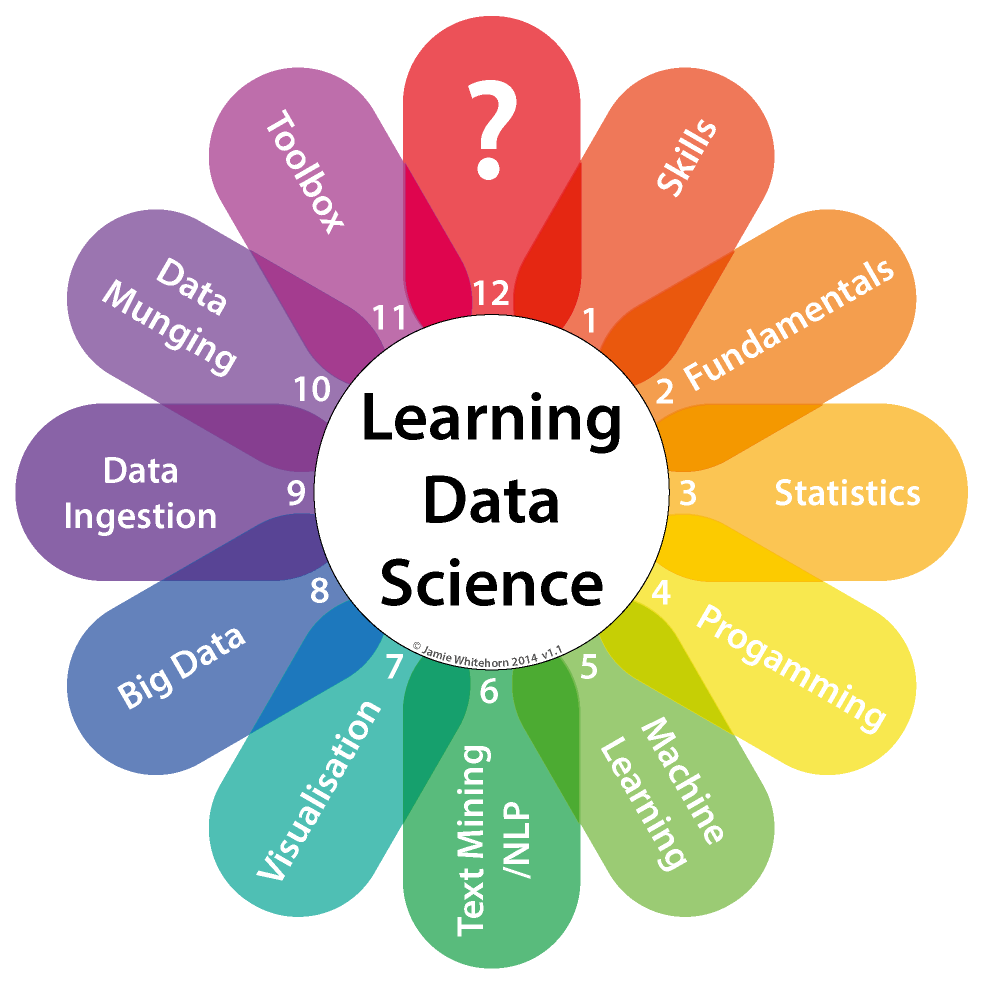Introduction

Department of Information Science
College of Computing and Informatics
Drexel University
Course intent
Who should take this course?
What will you get out of this course?
- Among other topics, this includes:
- what data is and where to find it,
- the differing work that gets done across the discipline,
- typical components of a data science project, and
- characterizations of "Big data."
If you want to see more of anything...
...take the major!
- Programming and development
- Web Systems and Services I: INFO 151
- Computer Programming I: CS 171
- Data Science Programming I & II: INFO 212 & 213
- Cloud Computing and Big Data: INFO 323
- Analysis and exploration
- Social Media Data Analysis: INFO 440
- Exploratory Data Analytics: INFO 311
- Advanced Data Analytics: INFO 411
- Data Mining Applications: INFO 371
If you want to see more of anything...
...take the major!
- Curation, management, and access
- Data Curation: INFO 202
- Applied Data Management: INFO 153
- Database Management Systems: INFO 210
- Information Retrieval Systems: INFO 300
- Introduction to Information Security: INFO 333
If you want to see more of anything...
...take the major!
- Design and visualization
- Information Visualization: INFO 250
- Human-Computer Interaction II: INFO 310
- Visual Analytics: INFO 350
- Social aspects and collaboration
- Social Aspects of Information Systems: INFO 215
- Issues in Information Policy: INFO 216
- Software project management: INFO 420
Course structure
- Overview:
- Eight quizzes (20%)
- Two homework assignments (30%)
- One mid-term exam (20%)
- One group project description (15%)
- One group project presentation (15%)
Quizzes
- For full credit:
- Show up every day.
- Complete all required readings.
Homework
- For full credit:
- Complete your assignments in a timely fashion.
- Make sure your responses are cogent and concise.
- Think creatively about your responses.
- Relate your experiences to the questions asked.
- Complete all required readings.
- Participate in class discussions.
- Ask questions and affirm your understanding.
Mid-term exam
- For full credit:
- Show up for/take your exams!
- Make sure your responses are cogent and concise.
- Complete all required readings.
- Participate in class discussions.
- Ask questions and affirm your understanding.
Project description
- For full credit:
- Start thinking about a topic early.
- Communicate and coordinate work with your group.
- Get specific about one product/dataset/technology.
- Consider both limitiations and advancements.
- Make sure your information is clearly presented!
Project presentation
- For full credit:
- Integrate feedback to update description material.
- Use images, graphs, and charts.
- Don't just read from slides!
- Pause for understanding and ask questions.
Recap
- Up next, an overview:
- What is data science?
- Who is a data scientist?
- What is data?